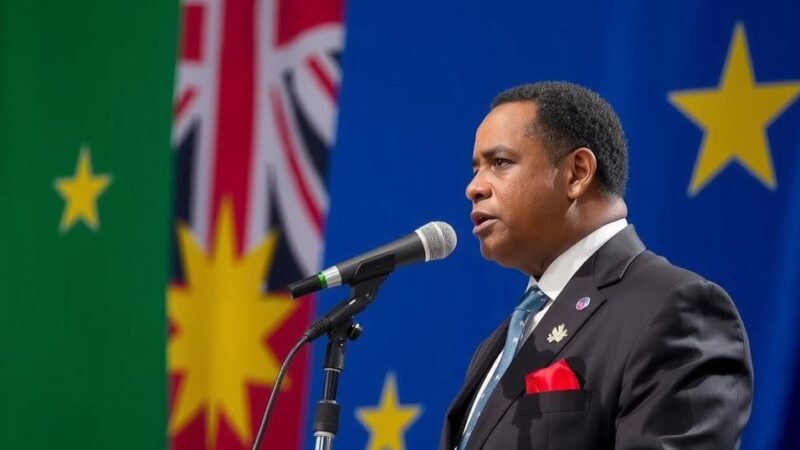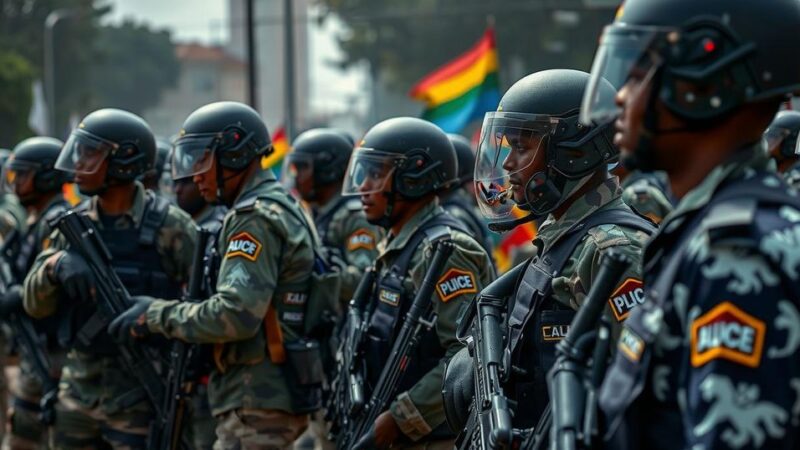Ethiopia has appointed Ambassador Taye Atske Selassie as its new president after President Sahle-Work Zewde’s term ended. The transition occurs amid tensions with Somalia over Ethiopia’s recognition of Somaliland and a related Memorandum of Understanding, impacting regional relations and security.
The Federal Democratic Republic of Ethiopia has appointed a new president, Ambassador Taye Atske Selassie, following the conclusion of President Sahle-Work Zewde’s tenure. This transition, which took place during a joint session of the People’s Representatives and the House of Federation, occurs amidst heightened tensions with neighboring Somalia. Ambassador Taye, previously serving as Ethiopia’s Minister for Foreign Affairs, has assumed the ceremonial presidency for a four-year term. During the inaugural session, he received the constitution from his predecessor and presented the federal government’s annual fiscal plan. Ethiopia’s recent actions, particularly the signing of a clandestine Memorandum of Understanding with Somaliland, have raised significant concerns regarding Somalia’s sovereignty. The agreement, which allows Ethiopia to access 20 kilometers of the Red Sea and entailed the recognition of Somaliland as an independent entity by Ethiopia, has provoked strong backlash from the Somali government. Somalia has firmly opposed the MoU, demanding its retraction and ruling out the involvement of Ethiopian National Defense Forces (ENDF) in the upcoming African Union Support and Stabilization Mission in Somalia slated to begin in January 2025.
The appointment of a new president in Ethiopia is significant in light of the current geopolitical climate in the Horn of Africa. The Federal Democratic Republic of Ethiopia often experiences complex relationships with its neighbors, particularly Somalia. Tensions have been exacerbated by the recent signing of an agreement recognizing Somaliland—a region that Somalia claims as part of its territory—thereby straining diplomatic relations further. As Ethiopia navigates these challenges, the role of the new president, who serves largely in a ceremonial capacity while the Prime Minister exercises actual power, will be crucial in addressing these diplomatic intricacies and fostering better relations in the region.
In conclusion, the appointment of Ambassador Taye Atske Selassie as Ethiopia’s new president coincides with a critical period for the nation, marked by contentious relations with Somalia due to Ethiopia’s recognition of Somaliland. The repercussions of these developments will be significant, influencing diplomatic engagements and regional security dynamics. How the new president proceeds in addressing these issues will be pivotal in shaping the future of Ethiopia’s foreign relations.
Original Source: www.garoweonline.com






